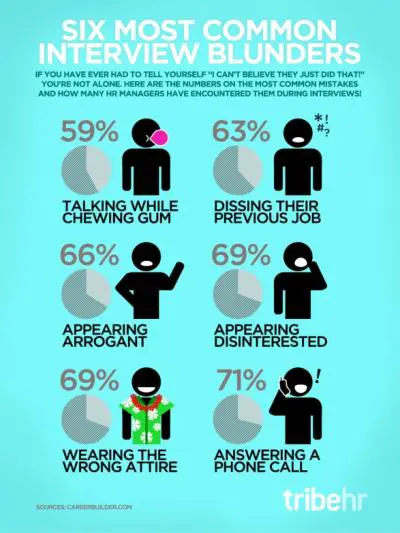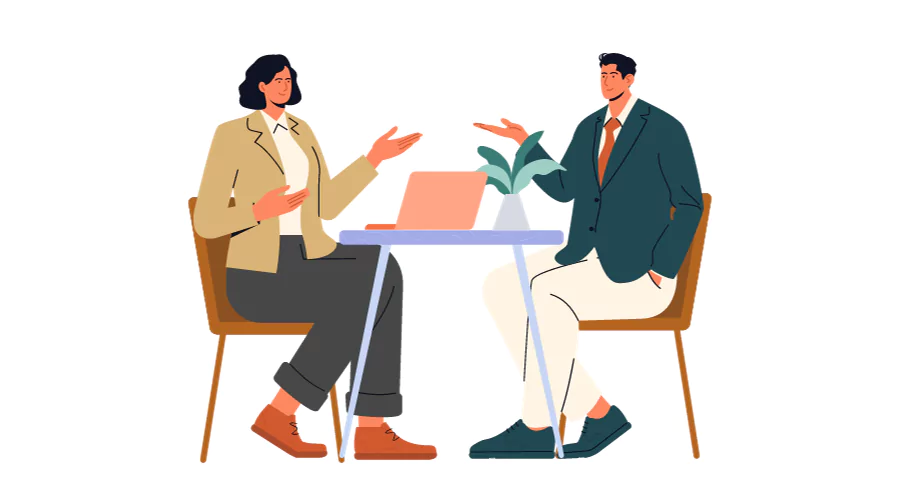As the job market continues its relentless evolution, mastering the art of the job interview is more crucial than ever. Insights from industry experts, especially those who once held pivotal roles within major corporations like Microsoft, can provide invaluable guidance. Various pitfalls can hinder your chances of landing that dream job, and understanding these nuances can set you apart from the competition. Being informed about common red flags can not only enhance your performance but also bolster your confidence going into an interview. Fill your toolbox with strategies to present your best self and leave a lasting impression.
The interview process isn’t just about showcasing your qualifications; it’s also about understanding the mindset of the interviewer. With insiders like Sabina Nawaz, a former Microsoft HR executive, shedding light on the interview dynamics, we are better equipped to navigate this challenging terrain. Through her extensive experience, Nawaz identifies key elements that can make or break an interview. From basic etiquette to the ability to articulate your unique strengths, her insights offer a roadmap to success.
Essential Job Interview Red Flags
Understanding what not to do in a job interview is just as important as preparing your answers. Nawaz highlights various common mistakes that interviewees often make. One of the most critical aspects is punctuality. Showing up late or unprepared demonstrates a lack of respect for both the interviewer’s time and the opportunity at hand. Furthermore, for virtual interviews, technical issues—like poor camera positioning or sound quality—can send the wrong signals before the conversation even starts.
Another considerable red flag identified by Nawaz is the failure to follow up with a thank you note post-interview. This simple gesture isn’t just courtesy; it reflects your professionalism and genuine interest in the role. Not following up can leave a negative impression and may distance you from other candidates who showed that level of attention.
In addition to basic etiquette, it’s crucial for interviewees to avoid vague descriptions of their strengths. Nawaz emphasizes how responses like, ‘I work hard and get things done’ are often insufficient. They lack the specific insight needed to convince interviewers of your unique value proposition. To stand out, candidates should think about concrete examples that illustrate their capabilities.

Presenting Your Strengths Effectively
Delivering your strengths in a compelling manner requires preparation. Nawaz advises candidates to compile a list of accomplishments that reflect their abilities. Consider detailing 20 to 30 examples from your personal or professional life that highlight situations where you excelled. Whether it’s leading a project, meeting a tight deadline, or resolving a significant issue, concrete stories can provide clarity to your interview responses.
Structuring these examples into a problem-solution format is key. Spend half of your narrative discussing the challenge faced and the other half elaborating on how you resolved it. This method not only paints a comprehensive picture of your capabilities but also illustrates your thought process and results. By doing so, you illustrate your value, showing potential employers what they can expect from you.
The Power of Follow-Up
Following up after an interview can significantly impact your chances of landing the job, especially in competitive markets. Nawaz underscores the importance of expressing gratitude through a personalized thank you note to each interviewer. This demonstrates professionalism, reinforces your interest in the position, and can remind interviewers of your qualifications, particularly as they review multiple candidates.
Preparing to follow up should start before the interview itself. Take notes during your conversation, especially on topics you discussed that resonated with you or highlighted your skills. Referencing these points in your thank you note can create a memorable connection between you and the interviewer.
A thank you note for a job interview should ideally be sent within 24 hours. Even if you feel the interview didn’t go as planned, expressing gratitude encourages a positive impression and shows resilience. This effort can reflect well on you and potentially overshadow any missteps in the interview.

Utilizing Technology for Preparation
With the rise of technology, candidates can leverage numerous online resources and platforms to refine their interview skills. Online simulations, feedback tools, and expert videos on sites like YouTube provide insights and strategies that can help hone your approach. For example, taking courses focused on interview techniques can offer more personalized guidance, helping candidates to develop responses to common questions, structure their narratives effectively, and build confidence.
Social media platforms also play a critical role in today’s job search landscape. Networking through websites like LinkedIn allows job seekers to connect with industry professionals who may give insights into particular companies or even opportunities. Additionally, researching potential employers on social media can yield valuable information about company culture, values, and recent happenings that might serve as conversation starters in interviews.
Common Interview Questions and How to Tackle Them
Understanding typical interview questions is pivotal in preparing to respond effectively. Interviewers often ask about your greatest strengths and weaknesses, how you handle challenges, and your career aspirations. Coming prepared with structured, thoughtful responses can alleviate anxiety and enhance your overall presentation.
Nawaz suggests practicing succinctly presenting your strengths. Rather than generic statements, candidates should focus on their unique competencies. Highlight what sets you apart, such as specific skills or experiences that relate to the positions applied for.
Furthermore, reflect on past experiences that connect to the role you’re interviewing for. Relating your skills to the job description makes your responses more relevant. Tailor your stories to reflect qualities that prospective employers are seeking. The more tailored and relevant you can make your responses, the more compelling your candidacy will appear.

Preparing Your Questions
When the interviewer invites you to ask questions, the tone of the interview often shifts. This is your opportunity to not only learn more about the company but also to demonstrate your engagement and curiosity about the role. Asking insightful questions reflects well on your candidacy.
Consider preparing at least two to three questions in advance that delve deeper into the role, team dynamics, or company culture. Questions about growth opportunities or the impact of the position within the company show you’ve done your homework and are sincerely interested in the opportunity. Additionally, asking about the next steps in the hiring process can clarify timelines for you and reinforce your enthusiasm for the prospective role.
The Role of Body Language in Interviews
Body language serves as a fundamental component of communication, especially during job interviews. How you present yourself physically can send signals to interviewers well beyond spoken words. Nawaz emphasizes that candidates must be conscious of their body language—this includes maintaining eye contact, using appropriate gestures, and adopting an open posture.
A relaxed but confident demeanor can help to build rapport with your interviewers. Non-verbal cues such as smiling and nodding can demonstrate engagement and interest in the conversation. Furthermore, mirroring the interviewer’s body language subtly can create a sense of connection.
Being aware of these aspects can sometimes make the difference between a successful interview and a missed opportunity. Just as you rehearse answers to questions, practice your body language. Recording a mock interview can help you assess how you appear and adjust accordingly before the actual day.

Overcoming Interview Anxiety
Interview anxiety is a common experience among candidates, no matter how qualified they may be. Techniques such as deep breathing, visualization, and positive affirmation can alleviate stress and help you enter your interview in a more composed state. Practicing mock interviews can also build confidence and provide insights into aspects that may require refining.
Creating a positive mindset before the interview can significantly influence your performance. Reminding yourself of your preparation and visualizing a successful outcome can help redirect negative thoughts into motivating affirmations. Focusing on the opportunity, rather than the potential of failure, transforms anxiety into a productive energy.
Leveraging Feedback for Continuous Improvement
Every job interview can serve as a valuable learning experience, irrespective of its outcome. After an interview, don’t hesitate to solicit feedback. Reach out to the interviewer to ask for insights on what went well and which areas you can improve. Constructive criticism can illuminate blind spots in your interview technique.
Nawaz highlights that developing a feedback loop can significantly enhance your future performance. Each interview brings a chance to reflect and adjust your approach based on feedback. Keep a journal documenting your experiences, responses that worked well, and areas for improvement. The more you engage with this continual process of learning and adjustment, the more skilled you’ll become as an interviewee.
Hi there! I’m Jade, a 38-year-old gossip journalist with a passion for uncovering the juiciest stories in the world of celebrity news. With years of experience in the industry, I love sharing the latest trends and insider scoops.



